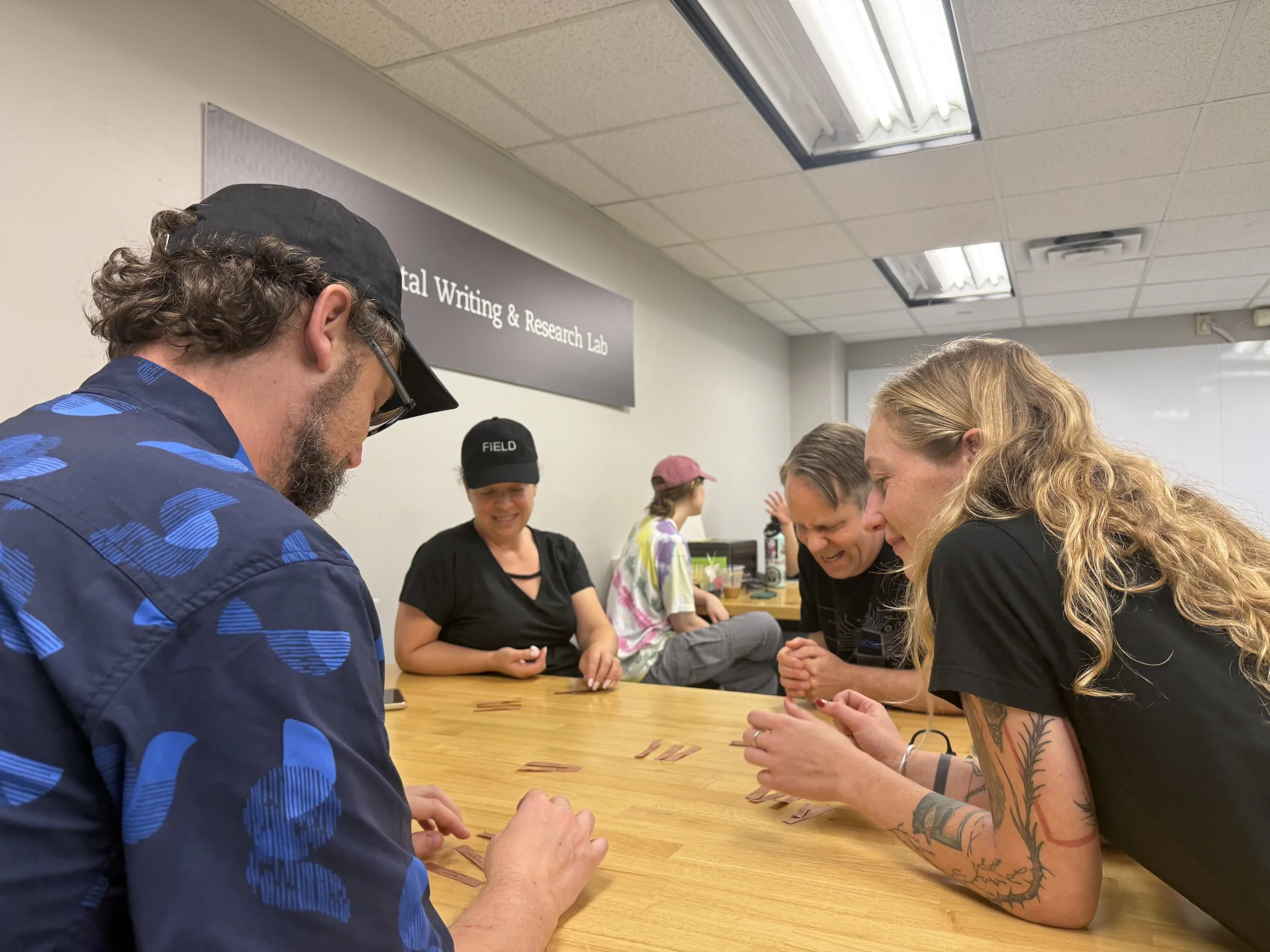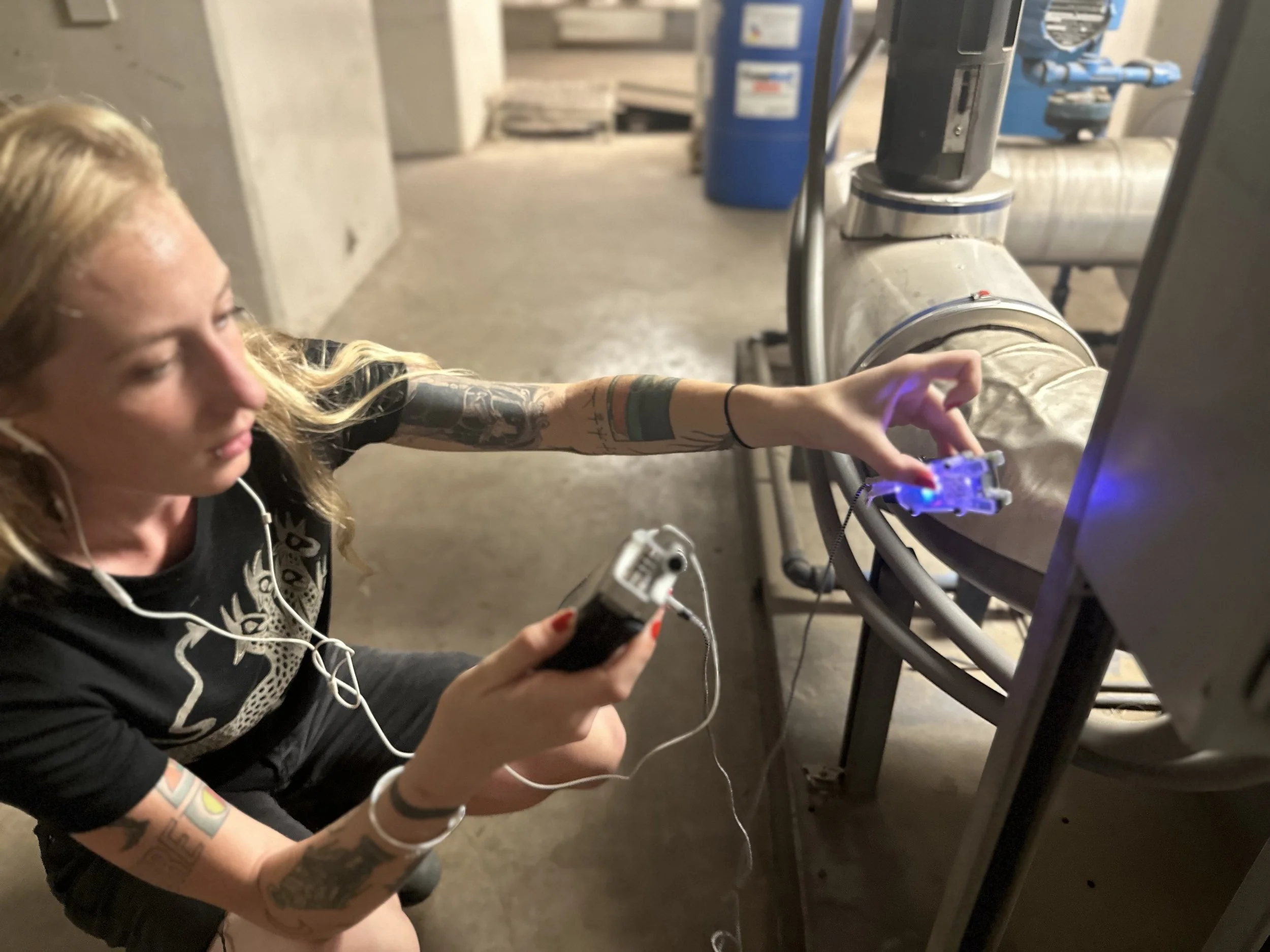Doctoral Research
My dissertation project is an inquiry into the spatial imaginaries of technocapitalism and their manifestation in contemporary immersive media, specifically virtual reality (VR) technology. My focus on immersive media stems from an interest in post-phenomenology in the digital age, particularly the composing relations of subjecthood in a timespace marked by the rapid increase of both environmental degradation and the ubiquity of digital technologies.
Taking place within the technocultures of Austin, this research considers how VR functions within contemporary technosocial and sociomaterial conditions to produce paradigms, designs, and enactments of novel human-technology-environment relations. I work at the intersection of geography, STS, and critical media studies, approaching my research with an interdisciplinary lens attuned to the technological mediation of human-environment relations.
Hear more about my research in this interview with VR researcher Kent Bye and this podcast with the Plutopia News Network
Methods
My dissertation research is grounded in semi-structured interviews and ethnographic field work done in the tech industry in Austin, TX and the virtual reality creator community. This fieldwork was guided by the attunements of sensory ethnography, embodied ethnography and critical ethnography. I spent two years embedded in the tech ecosystem in Austin, engaging three core spaces where technoculture coalesces in the city: South by Southwest Technology Conference, the Austin Forum for Technology and Society, and the Capital Factory Center for Entrepreneurship. During this work, I conducted over 40 interviews with members of the city’s tech industry, including a wide range of professions and stakeholders.
Throughout these years I also conducted research at major VR industry events SXSW VR Expo, Tribeca Film Festival, New Images Festival Paris, Laval Virtual, and the Festival of New Cinema Montreal. Over the course of five major VR expos I tried hundreds of VR programs and interviewed over 50 creators, focusing on the phenomenologies they produced in simulating the experience of embodiment in digital space. My own experience of VR events is illustrated through ethnography and auto-ethnography, and supplemented by content analysis of the exhibits’ VR programming.
Collaborations
Throughout my five years as a PhD student at the University of Texas at Austin, I have worked as a Graduate Research Assistant for labs in five different departments and been brought on as a co-author of four interdepartmental research articles. I am most proud of the role I have played participating in these interdisciplinary research projects at UT, and am immensely energized by my ongoing work contributing a geographic lens to these communities.
The research experience includes sensory ethnography with the Digital Writing and Research Lab; ethnography and archival content analysis with the Border Tech Lab; participant observation, data visualization and mapping with the Data Visualization Lab; discourse analysis and digital ethnography with the Assemblies of Technosolutionism working group; and grounded theory with the Group for Robotics in the Humanities.
I have served as the assistant director of the Digital Field Methods Institute at UT, a two-week research intensive that offers technical and theoretical training in digital field methods to doctoral students and professors in the humanities across the country. In this role I have helped conceive of the conceptual focus and research agenda of each year’s institute (find out more here), created and produced multiple workshops on data collection and analysis each year, and helped train researchers through hands-on field experience. This has included leading trainings on experimental field methods using photogrammetry, virtual reality, geophones, electromagnetic field sensors, hydrophones, microscopes, thermal cameras, time-lapse cameras, and more.




